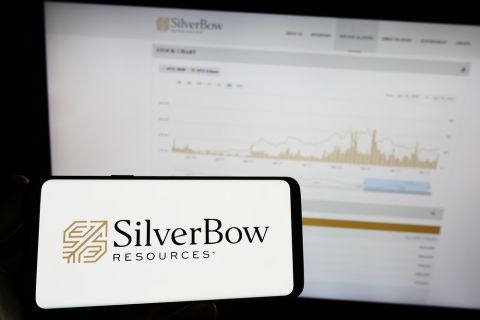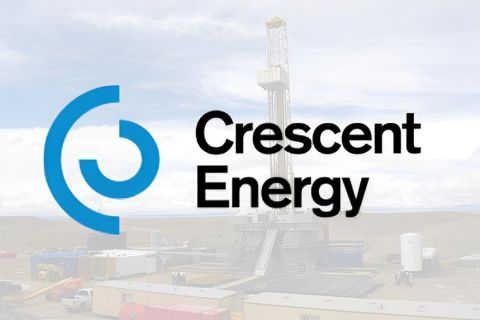More than a year after failed merger negotiations, Chevron Corp. is buying Texaco Inc. after all, for stock and the assumption of $7 billion of debt. The combination will form ChevronTexaco Corp.-the world's fourth-largest non-national integrated oil, in terms of production and reserves, with 2.7 million BOE per day of output and 11.2 billion BOE of proved reserves. U.S. production will total 1.1 million BOE daily; proved reserves, 4.2 billion BOE. San Francisco-based Chevron is offering one share of CHV per 0.77 share of White Plains, N.Y.-based Texaco-an approximately $35-billion deal, which is being accounted for as a pooling of interests. The price is an 18% premium to Texaco's preannouncement closing price, and 25% more than the 30-day average of each companies' stock price prior to the announcement. The offer is the equivalent of about $65 per share of Texaco. The companies failed to execute an agreement in 1999 at $70 a share. "While we think Chevron's acquisition of Texaco at this price represents a good long-term value for Chevron, we also believe that the decision was made partly out of frustration for its own anemic share valuation," said Chris Stavros, international and domestic oils analyst for PaineWebber Inc. Shares of CHV have ranged from $69 to $97 in the past year. On announcement day, they closed at $82, down $2.25 for the day. TX traded up, nearly $4 higher, closing at $59. The stock has ranged from $44 to $67 in the past year. The deal will close some time next year. The companies expect to save $1.2 billion, on an annualized basis, by merging, with approximately $700 million of that coming from "more efficient exploration and production activities," the companies report. Another chunk of savings will come from consolidating corporate functions ($300 million). Approximately 7% of the companies' combined 57,000 employees (Chevron, 31,000; Texaco, 26,000) will be laid off. Chevron shareholders will own approximately 61% of the combined equity. Dave O'Reilly, Chevron chairman and chief executive officer, will be chairman and CEO of the combined company. Headquarters will remain in San Francisco. Peter Bijur, Texaco chairman and CEO, will become vice chairman with responsibility for downstream, power and chemicals operations. Richard Matzke, Chevron vice chairman for upstream operations, will retain those responsibilities. The ChevronTexaco board of directors will consist of approximately three-fifths of the current Chevron board members. "This merger positions ChevronTexaco as a much stronger U.S.-based global energy producer better able to contribute to the nation's energy needs,'' O'Reilly said in a press statement. "That's good news for the country, because the United States will have an additional top-tier energy company better positioned to compete effectively with the international majors." Bijur said, "Texaco and Chevron are natural partners, whose historic relationship and operational fit are highly complementary...We also share common values, including protection of the environment, active support for the communities where we operate, and promoting diversity and opportunity in our workforce and among our business partners." ChevronTexaco will be the largest non-national producer of oil in the Caspian region. The companies will also combine operations in deep waters offshore West Africa, Brazil and the U.S. Gulf of Mexico. "The combination will significantly strengthen positions in core producing areas in North America and the North Sea. Further, the combination will create an outstanding portfolio of growth opportunities in Latin America and the Asia-Pacific region," the companies report. In power generation, Texaco's equity interests in 3,500 megawatts of power operating or under construction, will add to Chevron's 26% stake in Houston-based Dynegy Inc., giving ChevronTexaco "more options in the fast-growing power and energy convergence businesses." Both companies will have considerable interests in advanced technologies, such as Chevron's stake in Illumina Inc., a biotech firm; e-ventures, such as their Houston-based PetroCosm Inc. oil and gas e-procurement business; and alternate energy, such as fuel cells and gas-to-liquids conversion. They anticipate the Federal Trade Commission will require some U.S. downstream divestment. Stavros expects Texaco will have to relinquish its interest in Equilon, a west-of-the-Mississippi retail and marketing downstream venture with Shell. "The companies may also be forced to divest of some retail sites in Texas or other southeastern states where both have significant market share." He confirmed his Attractive rating on CHV and 12-month target of $98. Lehman Brothers Inc. is advising Chevron. Credit Suisse First Boston and Morgan Stanley Dean Witter are advising Texaco. While most companies reported exceptional first-half results, the numbers for Texaco and Chevron were mixed. For example, Texaco's European and Indonesian production declined due to scheduled maintenance in the U.K. North Sea and lower lifting entitlements in Indonesia. Texaco's downstream earnings fell 36% and Chevron's were down 20% in the first half, even though Royal Dutch/Shell's and Exxon Mobil Corp.'s downstream results each rose about 30%, reports EvaluateEnergy Plc, London. Texaco's operating cash flow per share in the first half, $3.67, lagged behind that of Chevron's, which was $5.72. It also trailed that of smaller companies such as Amerada Hess, Kerr-McGee, Talisman Energy, Phillips Petroleum, Apache Corp. and Devon Energy. -Nissa Darbonne and Leslie Haines
Recommended Reading
Kimmeridge Fast Forwards on SilverBow with Takeover Bid
2024-03-13 - Investment firm Kimmeridge Energy Management, which first asked for additional SilverBow Resources board seats, has followed up with a buyout offer. A deal would make a nearly 1 Bcfe/d Eagle Ford pureplay.
M4E Lithium Closes Funding for Brazilian Lithium Exploration
2024-03-15 - M4E’s financing package includes an equity investment, a royalty purchase and an option for a strategic offtake agreement.
Laredo Oil Subsidiary, Erehwon Enter Into Drilling Agreement with Texakoma
2024-03-14 - The agreement with Lustre Oil and Erehwon Oil & Gas would allow Texakoma to participate in the development of 7,375 net acres of mineral rights in Valley County, Montana.
California Resources Corp. Nominates Christian Kendall to Board of Directors
2024-03-21 - California Resources Corp. has nominated Christian Kendall, former president and CEO of Denbury, to serve on its board.
Uinta Basin: 50% More Oil for Twice the Proppant
2024-03-06 - The higher-intensity completions are costing an average of 35% fewer dollars spent per barrel of oil equivalent of output, Crescent Energy told investors and analysts on March 5.





